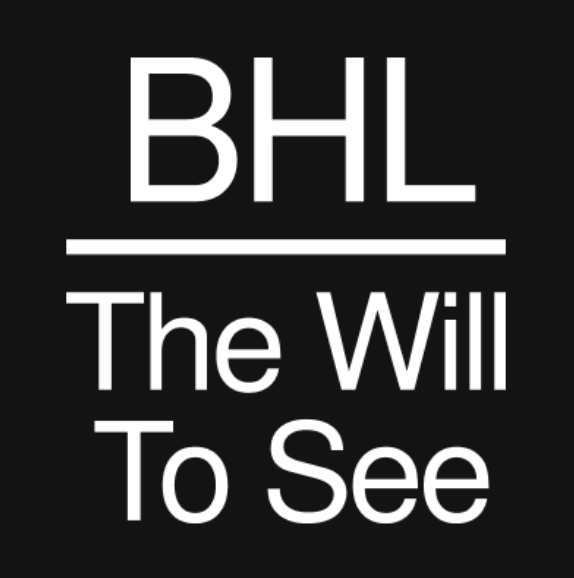By the time this article appears, I don’t know if there will be enough time to convince what’s left of the French left that it’s not right to conflate a centrist candidate with one from the far right?
Enough time to convince the populists of the extreme left of Jean-Luc Mélenchon that it’s not good enough to repeat, over and over again, like a broken record, “Not one vote for Marine Le Pen!” when abstaining gives her that same vote through the back door.
To convince the young people occupying the Sorbonne, in a bad remake of the student demonstrations of 1968, that the slogan “Neither Le Pen nor Macron” is irresponsible and absurd.
To convince the sorcerer’s apprentices among us that it is simply suicidal to count on civil war, the specters of racism and xenophobia, the triumph of the most vile form of nationalism to provoke some sort of electroshock, some awakening of conscience, some renaissance.
Will there be enough time to convince people that casting an antifascist vote is non-negotiable, that it’s a no-brainer?
That standing strong against fascism is incompatible with trying to extract concessions from the other candidate?
Is there time to convince the wavering voters that this isn’t the time to say “I’ll vote for Macron if… I’ll support Macron’s side if Macron supports this or that”?
Is there time to remind them of the first principle of the antifascist struggle, which goes like this: if you place conditions on your vote, if you hinge it on a deal, on a change of platform or direction, if you do any of that, you’re implying that there might be some circumstances where voting for a fascist might be justified?
Is there time to make the case that, whatever one thinks of his record, his plans, or his personality, a vote for Macron, today, must be unconditional?
I’m counting on it, needless to say.
I’m hoping that there’s enough time, with all my heart, given how disastrous the victory of Marine Le Pen would be for the economy, society, and spirit of the French republic.
And I want to believe that an eventual pulling together in the last hours of the campaign will pull France out of this waking nightmare.
The fact remains that, whatever its outcome, this election will leave an aftertaste of bitterness and regret.
That the nation of Jean Jaurès and Léon Blum, of General de Gaulle and Jacques Chirac, will have flirted with the worst.
That the country of the Enlightenment and the Declaration of the Rights of Man, the country that gave the world the moral, political, and philosophical legacy of the French Revolution, the country that sparked, across the ocean, Thomas Jefferson and Benjamin Franklin, the country of Napoleon’s epic journey, of Vercors the writer and Le Vercors the maquis of the French resistance in 1940 —the fact remains that the country of the Resistance and its patriotic and poetic story has never before found itself, in time of peace and of its own volition, so close to the abyss.
And even if we escape the worst it will be difficult for all of us to forget that the France of Voltaire and Diderot, of Pascal and Descartes, of Baudelaire and Chateaubriand, of Victor Hugo and Marcel Proust, the France which inspired Hemingway, Fitzgerald, Wharton, Gertrude Stein, Emerson, the France that holds in the beating heart of its language and history such a singular wealth of irony, independent pride, and beauty, should have voted in such great numbers and with such fanfare for an ideological undercurrent that no democratic election had ever brought so close to the gates of power.
It will be impossible to forget that France has seriously considered delivering itself into the arms of such a bitter, cantankerous, ignorant, mean-spirited fishmonger, bullying the weakest among us, servile before the powerful—a stranger, in a word, to everything great about our country.
Whatever happens, we, in France, will have to draw lessons from this ugly predicament.
We will have to think through the shame, the waste, the defeat that, even if rejected for now, have been summoned up and remain floating in the air we breathe.
And we shall have to think about what could have happened, what went wrong, to make us the only European nation to have played so closely with the fire of hate heated so white hot.
People will talk about “the protest vote.”
They will fault the elites for having skirted the questions that only the far-right candidates had the “courage” to ask.
Orchestrated by a Marine Le Pen (who has become skilled at the task), they will bring up the revenge of the Yellow Vests, of the steamrolled antivaxxers, of Putin defeated in Ukraine but resurgent on the French front.
But I fear the problem lies deeper still.
I’m afraid we’re no longer in the time of Jean-Marie Le Pen, of his crude provocations and the good old protest vote.
And I wonder whether his daughter might not be the half-witting instrument of a force that has overtaken her: a dark suicidal impulse; a wish for destruction and death lurking close for a very long time before crystalizing; a slow descent, like Poe’s House of Usher sinking into its tarn, vaguely sensed by a people who have grown tired of themselves, a people drunk with resentment, a people giving in to the nihilistic urges that sunder the greatest of nations.
But, I repeat, now is not the time for such considerations.
Now is the time for the French people to pull themselves together, to take a leap of faith in the face of the hurricane of vulgarity, mediocrity, and baseness that is blowing around France’s ballot boxes.
At this moment, one thing, and one thing only, is urgent: to ensure that the House of Macron, reinforced by an overwhelming number of votes, keeps France from sinking into the dark lake of the darkest of its urges.

Official social networks